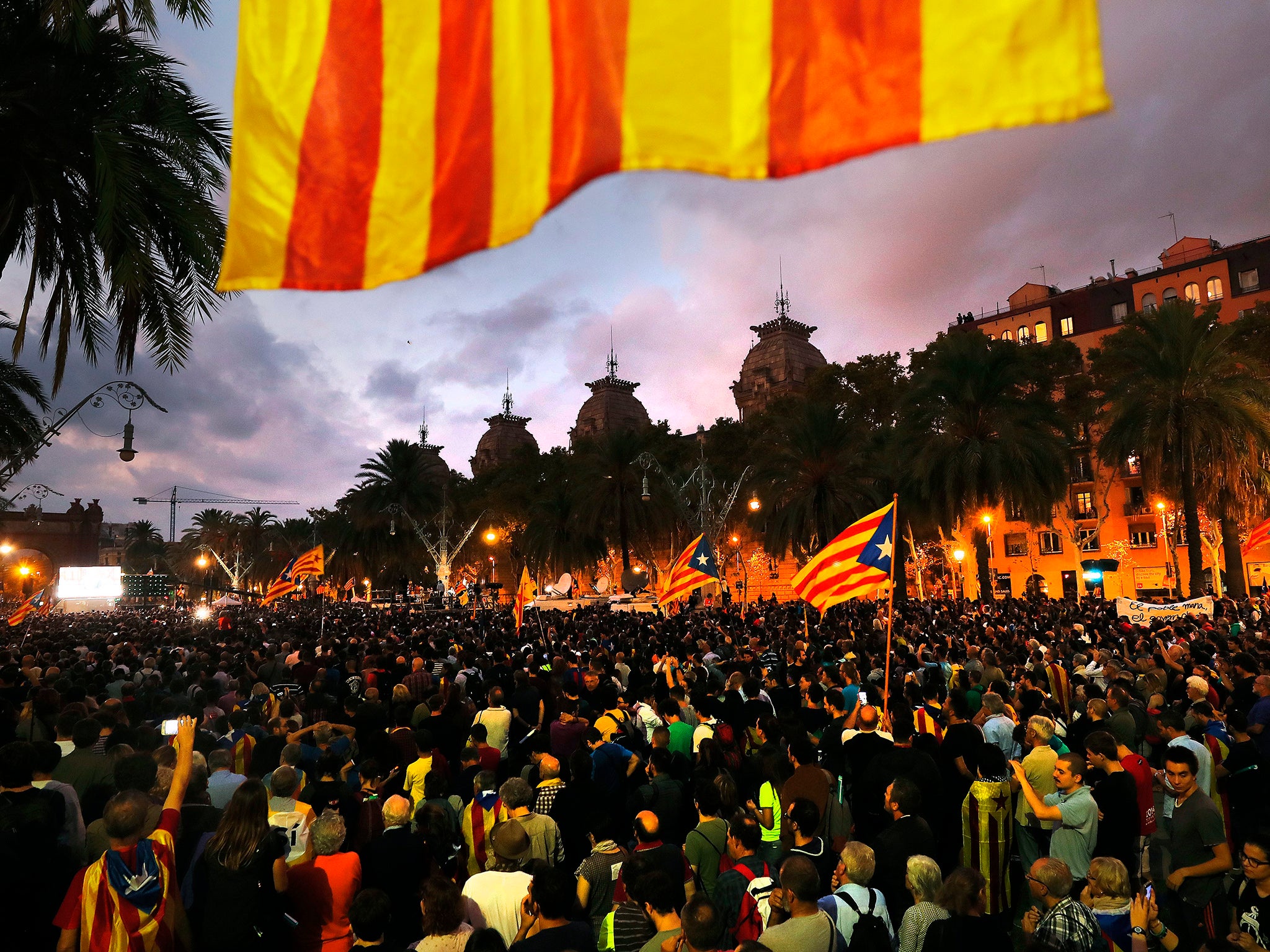Catalonia: Spanish government rejects 'tacit' independence declaration

Your support helps us to tell the story
From reproductive rights to climate change to Big Tech, The Independent is on the ground when the story is developing. Whether it's investigating the financials of Elon Musk's pro-Trump PAC or producing our latest documentary, 'The A Word', which shines a light on the American women fighting for reproductive rights, we know how important it is to parse out the facts from the messaging.
At such a critical moment in US history, we need reporters on the ground. Your donation allows us to keep sending journalists to speak to both sides of the story.
The Independent is trusted by Americans across the entire political spectrum. And unlike many other quality news outlets, we choose not to lock Americans out of our reporting and analysis with paywalls. We believe quality journalism should be available to everyone, paid for by those who can afford it.
Your support makes all the difference.The Spanish government has described Catalan leader Carles Puigdemont’s parliamentary statement in which he suspended a declaration of independence from Spain, as “blackmail broadcast live to the state” and said it rejects the “tacit” independence declaration.
In his address the Catalan leader maintained the legality of the October 1 referendum, and said Catalans had “won their right to become an independent country” but said he will first seek to open a dialogue with Madrid.
Spain’s ABC newspaper quoted central government sources who said Mr
Puigdemont’s statement would have “legal consequences”.
“The government will not give in to any blackmail, it will not allow it,” sources from La Moncloa, Prime Minister Mariano Rajoy’s official residence, reportedly said.
The Spanish government has said any unilateral declaration of independence would be illegal and has promised action "to restore law and democracy" if the parliament of the autonomous and affluent northeastern region presses ahead.
Mr Rajoy could take the unprecedented step of dissolving the Catalan parliament and triggering new regional elections, the so-called "nuclear option".
The Madrid government could also ask the courts to strike down a declaration of independence as unconstitutional.
Despite renewed calls for dialogue with Madrid, the proclamation makes a negotiated solution more difficult as Rajoy has said he would not talk to the Catalan leaders until they drop plans for independence.
Join our commenting forum
Join thought-provoking conversations, follow other Independent readers and see their replies
Comments